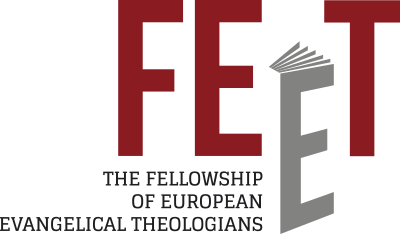Where Does Mariology Come From?
Central to the Christian faith is the conviction that the Bible has primacy in all matters of faith and conduct. Scripture is the written, divinely inspired Good News of Jesus Christ and therefore it is the highest authoritative rule for the whole of our life. What the Bible teaches, Christians ought to believe. What the Bible tells us, we ought to do. There is no higher authority than Scripture and everything Christians believe and do needs to be squared with the Bible.
Roman Catholicism is a religious system which has a different basis. It has Scripture to a certain extent, and it has its own tradition(s) at the same time. The Bible is just one of the authorities – but is not the only one nor is it the highest. It is one among other authorities. In Roman Catholic doctrine, as it is expounded in Dei Verbum, the 1965 Vatican II document on Revelation, God’s Revelation comes to us in the form of an oral tradition that takes two forms: the written text of the Bible and the living voice of the official teaching of the Roman Catholic Church. According to this view, tradition is prior to the Bible, bigger than the Bible, and its present-day voice is not the Biblical text alone but the on-going teaching of the Church whatever it argues for. The Bible cannot be the ultimate authority. It cannot teach, reproof, correct and train if it is not the final word. There is something bigger than it, and there is something more relevant than it, that being tradition to which the Church gives voice. According to Roman Catholicism the Bible is important, but inconclusive. It is quoted but not decisive. It is one form of revelation, but not the final one.
Moreover, the Catholic view of tradition is “developmental”.[1] It grows over time and “tends continually towards the fullness of divine truth”.[2] The Bible is the starting point but not the final one. Tradition is innervated by a vital pulse that makes it expand and develop. Mariology is a crystal-clear example of how tradition grows in Roman Catholicism. What can be known from Scripture about Mary is not the end and the context of Mariology but only the beginning of it. Mariology works out and develops what is known in terms of what is true as far as the four Mariological principles of tradition are concerned.
The Bible gives us a clear account of the mother of Jesus. However, Roman Catholic Mariology developed into a highly sophisticated doctrine calling her “Advocate, Auxiliatrix, Adjutrix and Mediatrix”.[3] These are all Christological titles that were passed onto Mary. What the Bible ascribes to Jesus alone, the Roman Church ascribes to Mary. Why? Because tradition takes precedence over the Bible and can therefore lead to these Mariological developments, which detract attention from the Lord Jesus. It is no surprise that in many majority Catholic regions, the cult of Mary is practised more than praying to Jesus.
The Bible clearly teaches that Jesus was sinless, but the rest of mankind lies in sin. The Catholic Church, however, believes that Mary his mother was also preserved from original sin. This is not what the Bible tells us, but the Roman Church does not rely on the Bible alone.
According to Rome, God’s Revelation is on-going and the present-day voice of God is the official teaching. It may take 1900 years to state a new dogma, as it is the case with the two Marian dogmas, but the fact that Scripture is not the final authority makes the Catholic system an ever-expanding one beyond biblical boundaries. The point is sufficiently clear. Roman Catholic Mariology is not based on the Bible alone, the authoritative Word of God written, but on a much wider and more fluid on-going reservoir of divine Revelation. As the great Welsh preacher Martyn Lloyd-Jones (1899-1981) said, in Roman Catholicism “it is not so much a denial of the truth that comes to pass as the addition to the truth which becomes a departure from it”.[4]
[1] It was John Henry Newman (1801-1890) who introduced the term in his seminal book An Essay on the Development of Christian Doctrine (1845). His theology of development was subsequently integrated in the Roman Catholic teaching. The Protestant faith readily recognises the fact that theological development takes place in some sense. However, as the 1647 Westminster Confession of Faith (1,6) aptly affirms: “The whole counsel of God concerning all things necessary for His own glory, man’s salvation, faith and life, is either expressly set down in Scripture, or by good and necessary consequence may be deduced from Scripture: unto which nothing at any time is to be added, whether by new revelations of the Spirit, or traditions of men”. According to this view, development can occur in terms of “good and necessary consequence” and “deduction from Scripture”, but no addition can take place as far as what the Bible plainly teaches. [2] Second Vatican Council, Dei Verbum 8. [3] Second Vatican Council, Lumen Gentium 62. [4] D.M. Lloyd-Jones, Roman Catholicism (London: Evangelical Press n.d.) n.p.

